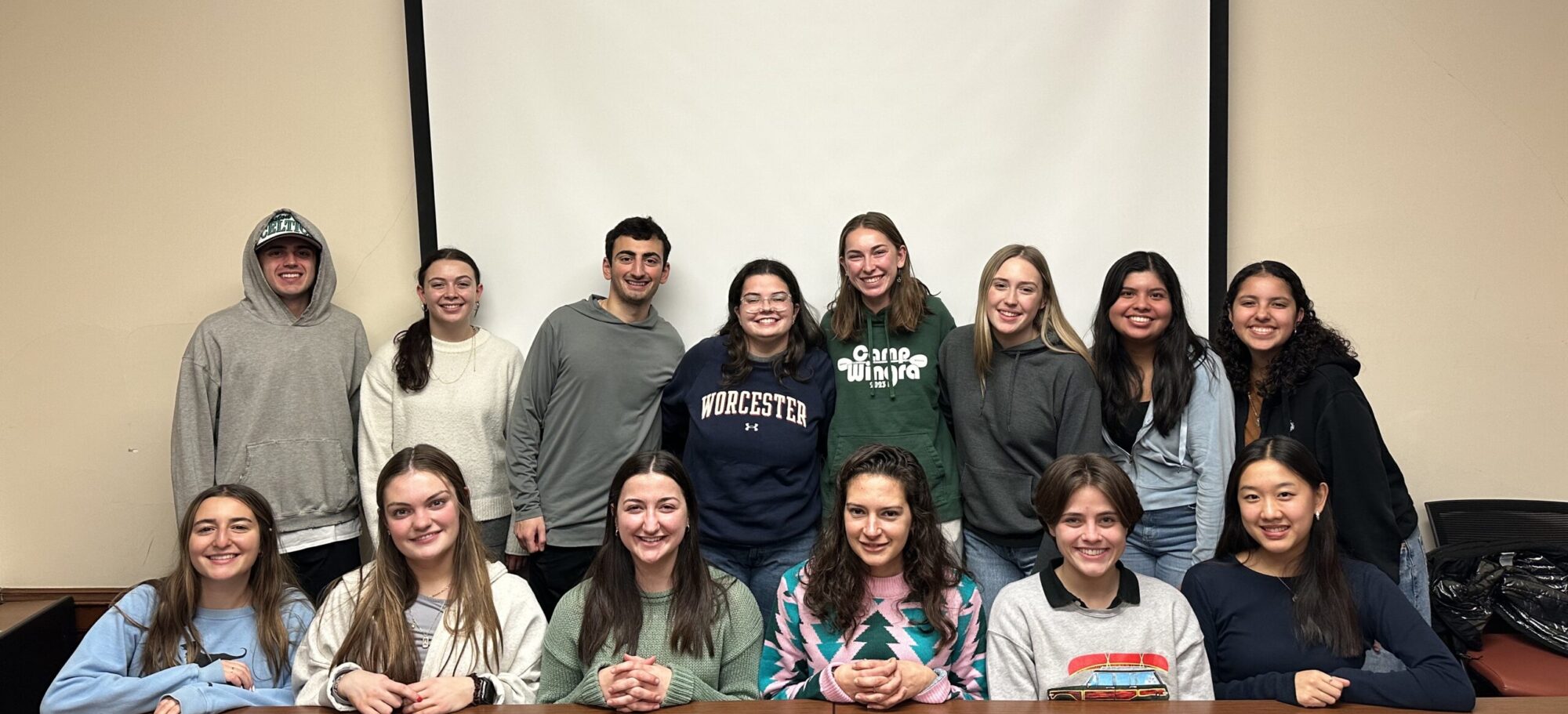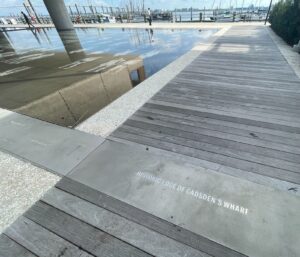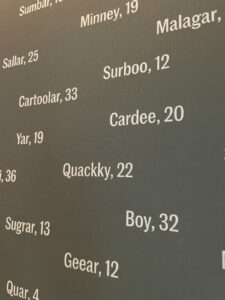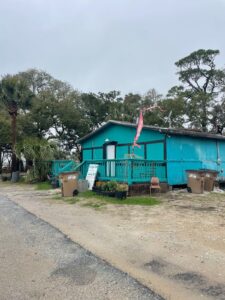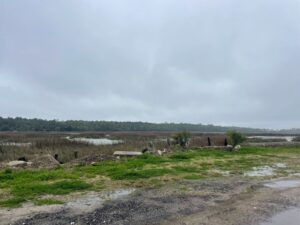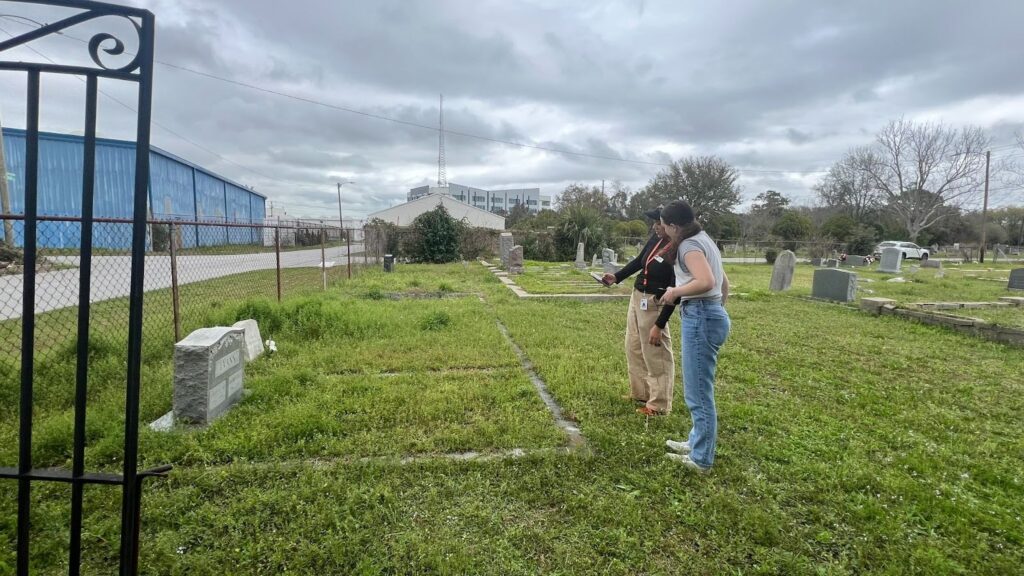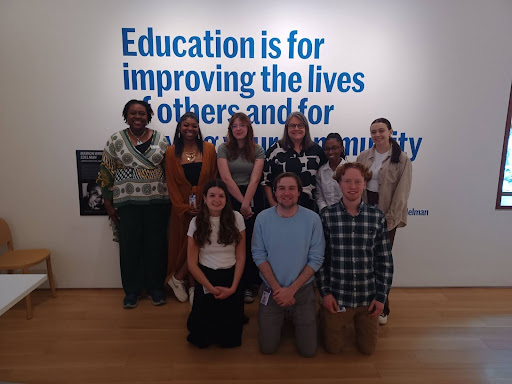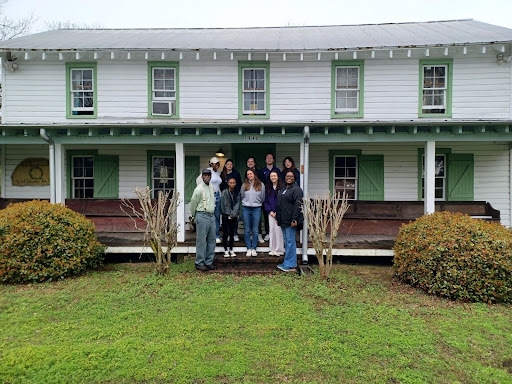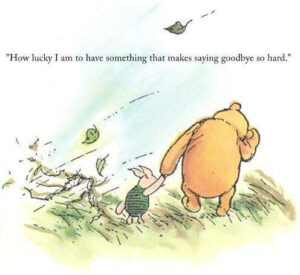The Untold Stories of African Americans in Charleston: A Reflection on My Week with the International African American Museum
My spring break trip ruined the city of Charleston, South Carolina for me; by the end of the week, the beautiful architecture had lost its wonder as I reckoned with the painful history that the charming atmosphere covers. I am grateful for the ways in which the program broke my heart open to witness the complex history of African Americans in South Carolina, and I wouldn’t have wanted to be introduced to the city in any other way.
My classmates and I had the opportunity to participate in the inaugural Alternative Spring Break Program with the International African American Museum (IAAM), which is located on Gadsden’s Wharf, where 40% of African people who were brought to America for slavery arrived. As a CBL Intern, I was drawn by the opportunity to immerse myself in a new community and connect my previous understandings of African American history to the experience of witnessing historical locations and hearing first-hand accounts from those in Charleston. Our trip was graciously funded by Tom Maher ‘84 and Nancy Maher of Pisgah Investments Foundation, who “feel fortunate to help create and sustain this program” and “hope this will be an impactful and transformative experience for students.” Tom shares that “the IAAM invites students to witness the tragedies and triumphs of African American people, honoring and respecting the past and providing hope for the future.” IAAM’s commitment to honoring the past, present and future of African Americans is demonstrated through their intentional architecture, as the museum was built on pillars to preserve the sacred site of the wharf line, which is surrounded by “tides” of human outlines.
The museum’s impressively intentional design and curation extends indoors. One exhibit that stood out to me was African Roots/African Routes, specifically a section that highlighted the changing of Africans’ names upon arrival to America. The “departure” side of the hallway showcased a log with “one person one being” surrounded by individuals’s names and ages, while the log on the “arrival” side read “one sorrow one revolution” which showcased the common practice of changing names and erasing ages of Africans as they were forced into slavery. This powerful piece called me to reflect on the stark loss of humanity during the international human trafficking trade, especially of those who died overseas and were forgotten, as one’s name carries significant history and personal meaning.
On our second day, we had the special opportunity to work in the archives with the Center for Family History, where we scanned historical documents including books, personal photos, and news articles. One of my classmates, Patrick Grudberg ‘24, shared that this day gave him the “perfect opportunity to put my skills as a history major into practice” as he could “work in the museum setting in archives” while also seeing history in action through the Charleston community. Additionally, we had the chance to collect metadata from a collection of U.S. Colored Troops pension records, which provided incredible insights into the lives and families of African American soldiers in the Civil War.
My favorite day of the spring break experience was Wednesday, where we received a tour of the historic Sol Legare community from President William Wilder and Curator Ernest Parks of the Seashore Farmer’s Lodge. The lodge members highlighted how the founding members of Sol Legare built their community to be self-sufficient and spoke about their work to restore the lodge, which is a museum highlighting the Civil War and larger history of the island. I was inspired by Mr. Parks’s love for his community and his hopes to restore Mosquito Beach, a once energetic community space for African Americans to celebrate in dance and socialization since they were not allowed to go to Folly Beach during the Jim Crow era. While not replicative of the typical image of a “beach,” I was energized through witnessing the site of the stories told by Mr. Parks about the joy and relationships that were cultivated during times of significant trials for African Americans in Charleston.
The remainder of our trip focused on unmarked or at-risk African American burial grounds. Through our collaboration with the Anson Street African Burial Ground Project and the Preservation Society of Charleston, we received training on mapping cemeteries using ArcGis123 and a tour of at risk burial grounds throughout Charleston. Witnessing the state of African burial grounds was sobering; we heard stories of headstones being used as yard decor and visited the football stadium of the Citadel, where the end zone is referred to as “the bone yard” since it was built over a burial area. The stories and state of the burial grounds we visited emphasized the importance of recovering the untold stories of African Americans, as their history and dignity has been historically diminished through gentrification efforts.
On Friday, we had the special opportunity to collaborate as a group and complete an online map of the Brotherly Association Cemetery. One of the most eye-opening aspects of this experience was getting to meet some of the descendants of those who were buried in the cemetery. Another classmate, Ned Coursey ‘24, shared that the experience “really showed how important it is in academics to go out and talk to members of their communities, not just for more accurate footnotes, but also to build a sense of solidarity and respect between both groups.” I am grateful to the descendants for welcoming us into the final resting place of their ancestors and their willingness to share their stories. Additionally, I am thankful for the opportunity to help create a map of the cemetery that can be used to help others find their ancestors and ensure that the existence of those buried is not forgotten.
My week in Charleston far exceeded my expectations on all accounts; the stories I heard, the often forgotten parts of history that I learned, and the relationships I built have helped me develop a more critical lens and question whose stories are not being told or forgotten. I fondly remember the refreshing conversations that I was able to have with fellow participants and the bonds we were able to build over our shared passions for learning more about African American history in just one week. As my last weeks as a CBL Intern and student at Holy Cross rapidly approach, I am excited to implement the new perspectives I gained in Charleston to recognize how our community partners uplift the untold stories of the marginalized and what stories have yet to be highlighted in the Worcester community. The IAAM staff was incredibly supportive and knowledgeable, and I highly recommend a visit to the museum if you are seeking to receive the true, inclusive history of historical Charleston.

